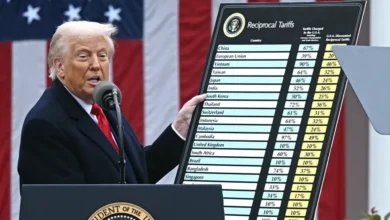
By Pinelopi Koujianou Goldberg
Special to The Times Kuwait
“It’s the economy, stupid.” This famous slogan from Bill Clinton’s 1992 presidential campaign was once thought to capture the key issue on American voters’ minds in any election year. So, will that mantra be vindicated once again this year?
While it is premature to declare economic victory, inflation appears to have been tamed without triggering a recession, the labor market remains tight, and President Joe Biden’s policies have disproportionately benefited low-income Americans (though much more remains to be done). Yet in poll after poll, respondents express deep dissatisfaction with the country’s leadership.
The discontent is not just with Biden but extends to all ‘major economic leaders’, including US Federal Reserve Chair Jerome Powell, who was not even appointed by the current administration. It cannot be attributed to recent foreign-policy decisions in the Middle East, because the low approval figures predate the Hamas attack on October 7. Instead, there seems to be a sharp disconnect between the way economists view the state of the US economy and people’s perceptions of their own well-being.
What explains this? One hypothesis is inequality. On one hand, standard income inequality, as measured by the Gini coefficient or wage dispersion, does not obviously explain rising discontent. After increasing in the preceding decades, income inequality has remained stable in recent years, and Biden’s policies have explicitly sought to address it.
On the other hand, inequalities in health outcomes or across regions remain glaring, and current economic policies cannot do much to reverse them in the short run. Even more importantly, perhaps, is the growing sense among people in many parts of the country that political and academic elites have forgotten them and care more about Palestine in the Middle East than East Palestine, Ohio.
A second hypothesis, particularly relevant to the younger generation, is that uncertainty about one’s professional and economic prospects has increased in a world marked by AI, geopolitical conflict, and climate change. The upward mobility that earlier generations enjoyed no longer seems likely.
The problem with this hypothesis is that it is based on an ex post evaluation of earlier generations’ achievements. In retrospect, we know that attaining a college degree or higher and entering the labor market in the early 1990s – at the onset of hyperglobalization and rapid economic growth – was equivalent to winning the lottery for those of us who were lucky enough to do so. At the time, however, we had no idea about what was to come. Previous generations experienced the same day-to-day anxieties and uncertainties that the younger generation faces today, but these did not lead to the same widespread discontent.
A third hypothesis focuses on the overall decline of institutions and public life, which encapsulates everything from the loss of civil discourse to gerontocracy, deepening political polarization, and recurrent policy paralysis (think debt ceilings and government shutdowns). These issues may have only tenuous links to economics, but they contribute to the increasing disillusionment with the functioning of American democracy.
A less bleak view is that the current discontent is a byproduct of the progress the US has made as a society. While some forms of inequality have increased, others have noticeably decreased. Few would question that women, Black Americans, and members of the LGBTQ+ community have many more opportunities to compete today than they did two decades ago, when they were still excluded from many fields. In relative terms, white males have lost the most. If one views the world through the prism of a continuous zero-sum power struggle, one should not be surprised to see pushback from those who are losing privileges they long took for granted.
Another ‘positive’ take is that pre-existing sources of discontent, like unequal treatment, are more salient today precisely because people are aware of new opportunities and the factors leading to success (that is, ‘how the game is played’). Instead of feeling content with what they have achieved, they focus on where they have fallen short of their aspirations.
Consider the case of elite college admissions. My home institution, Yale University, had about 18,000 applications for the class of 2007, compared to about 52,000 for the class of 2027. A generation ago, Yale might have been considered out of reach to all but a few; but now the dream is within reach, and applications have poured in. The flip side is the bitterness that an applicant’s family feels after rejection by an elite college. What they take away from the experience is not that they had a shot, but that the promise did not materialize.
The same disappointment arising from unfulfilled promises in a world of rising aspirations may explain discontent in many other contexts, from the advancement of professional careers to the fate of businesses. The positive side is that people feel empowered to eye the next rung up the ladder.
As usual with social phenomena, the source of today’s discontent is likely to be multidimensional, including elements of all of the above explanations, as well as others. Hard as it is for an economist to admit, one thing is certain: It’s not just the economy, stupid.

Pinelopi Koujianou Goldberg
A former World Bank Group chief economist and editor-in-chief of the American Economic Review, is Professor of Economics at Yale University.
Copyright: Project Syndicate, 2024.
www.project-syndicate.org












